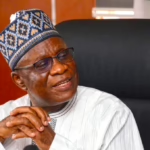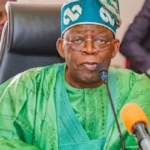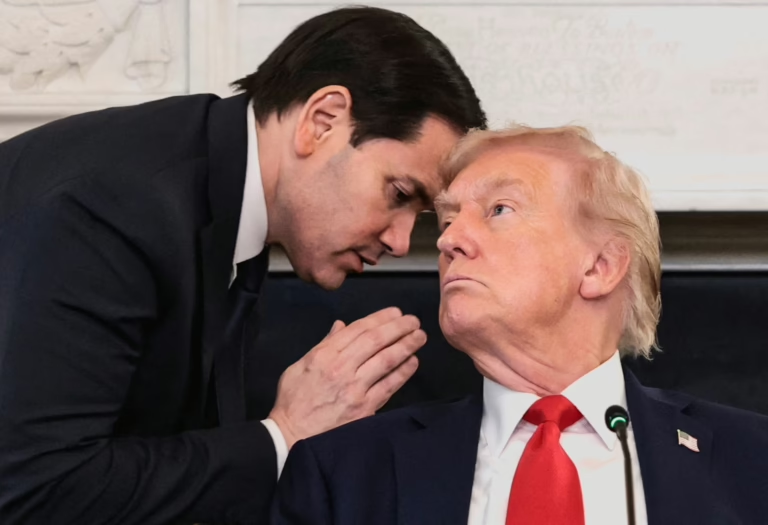Israel and Hamas have reached an initial agreement on a ceasefire, based on a 20-point proposal from U.S. President Donald Trump designed to bring an end to the conflict in Gaza.
President Trump announced the breakthrough on his Truth Social platform late Wednesday, stating, “This means ALL hostages will be freed shortly, and Israeli forces will pull back to a mutually agreed boundary.”
The first phase of the agreement requires Hamas and allied Palestinian groups to release 20 Israeli detainees believed to be alive, along with the remains of 28 others held in Gaza. In return, Israel will free over 1,000 Palestinian prisoners, including many from Gaza arrested since the outbreak of hostilities in October 2023, according to a list provided by Hamas.
In a separate interview on Fox News’ Hannity show, Trump suggested that the release of Israeli captives could occur as early as Monday.
Both Israel and Hamas have confirmed the ceasefire deal, though they differ on certain aspects of how the broader peace plan will be implemented.
This announcement came after three days of indirect negotiations held in Sharm el-Sheikh, Egypt, involving senior representatives from Qatar, Turkey, Egypt, and the United States alongside Israeli and Hamas delegations.
While the ceasefire has yet to be enacted, the news has sparked widespread optimism and congratulations from leaders around the globe.
U.S. President Donald Trump
President Trump expressed pride in the agreement, sharing on Truth Social that “Israel and Hamas have both endorsed the initial phase of our Peace Plan.” He received confirmation from Secretary of State Marco Rubio during a press briefing that a deal was imminent.
Trump emphasized fairness for all parties involved and hailed the day as a significant milestone for the Arab and Muslim world, Israel, neighboring countries, and the United States. He also thanked mediators from Qatar, Egypt, and Turkey for their crucial roles in facilitating this historic event.
During his Fox News interview, Trump envisioned a future where “people coexist peacefully and Gaza undergoes reconstruction,” predicting a transformed region with substantial investment in Gaza’s recovery.
He also hinted at a possible visit to Egypt by the weekend to further support the peace process.
Israeli Prime Minister Benjamin Netanyahu
Prime Minister Netanyahu described the day as “momentous for Israel” and announced plans to convene his cabinet to ratify the agreement and secure the return of all hostages.
He expressed deep gratitude to Israeli soldiers for their bravery and sacrifice and extended sincere thanks to President Trump and his team for their commitment to the hostage release mission.
Netanyahu reaffirmed his hope that, with divine assistance, Israel will continue to meet its objectives and foster peace with neighboring nations.
Hamas
Hamas issued a statement expressing appreciation for the mediation efforts by Qatar, Egypt, and Turkey, as well as President Trump’s role in striving to end the conflict and achieve a full Israeli withdrawal from Gaza.
The group called on Trump, the guarantor states, and the international community to ensure Israel fulfills its obligations under the agreement without delay or evasion.
Hamas praised the resilience and heroism of Palestinians in Gaza, Jerusalem, the West Bank, and the diaspora, highlighting their steadfast resistance against what they described as oppressive occupation policies.
They vowed that the sacrifices made would not be in vain and reaffirmed their commitment to securing freedom, independence, and self-determination for their people.
United Nations Secretary-General António Guterres
Secretary-General Guterres welcomed the ceasefire and hostage release agreement, acknowledging the diplomatic efforts of the United States, Qatar, Egypt, and Turkey in achieving this critical breakthrough.
He called on all parties to fully respect the terms of the deal, emphasizing the importance of releasing hostages with dignity and establishing a permanent cessation of hostilities.
Guterres stressed the urgent need for unhindered humanitarian access to Gaza to alleviate suffering and pledged the UN’s support for implementing the agreement, including scaling up humanitarian aid and reconstruction efforts.
He also urged stakeholders to seize this opportunity to pursue a two-state solution that guarantees peace and security for both Israelis and Palestinians, highlighting the unprecedented stakes involved.
Qatar
Qatar has played a leading role in mediating the conflict over the past two years. Earlier this week, Prime Minister Sheikh Mohammed bin Abdulrahman bin Jassim Al Thani traveled to Egypt to participate in the ceasefire discussions, underscoring the urgency of ending the war.
Following the announcement, Qatar’s Ministry of Foreign Affairs confirmed that an agreement had been reached on all provisions and implementation mechanisms for the first phase of the Gaza ceasefire, which aims to end the conflict, facilitate hostage and prisoner releases, and allow humanitarian aid into Gaza.
Foreign Ministry spokesperson Majed al-Ansari indicated that further details would be disclosed in due course.
British Prime Minister Keir Starmer
Prime Minister Starmer welcomed the initial agreement under President Trump’s peace plan, urging its full and immediate implementation.
He emphasized the necessity of lifting all restrictions on vital humanitarian aid to Gaza alongside the ceasefire.
Indian Prime Minister Narendra Modi
Modi praised the first phase of the peace plan as a positive step toward enduring stability in the region.
He acknowledged the strong leadership of Prime Minister Netanyahu and expressed hope that the release of hostages and increased humanitarian support would provide relief to Gaza’s people and pave the way for lasting peace.
New Zealand Foreign Minister Winston Peters
Foreign Minister Peters highlighted the importance of Hamas releasing all hostages and Israel withdrawing troops to the agreed boundary as essential initial steps toward sustainable peace.
He called on both parties to continue working toward a comprehensive resolution of the conflict.






















